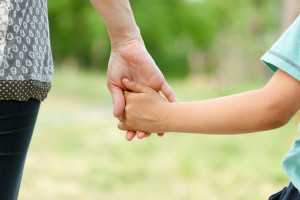- Calls to this hotline are currently being directed to Within Health, Fay or Eating Disorder Solutions
- Representatives are standing by 24/7 to help answer your questions
- All calls are confidential and HIPAA compliant
- There is no obligation or cost to call
- Eating Disorder Hope does not receive any commissions or fees dependent upon which provider you select
- Additional treatment providers are located on our directory or samhsa.gov
Interventions for Anorexia: How to Start

Contributor: Amy M. Klimek, MA, LCPC, Director of Program Development, Eating Disorder Program Coordinator, Timberline Knolls
Intervention, by definition, always happens after the fact; it means that an eating disorder is already in place. That’s why eating disorder awareness and early prevention is so critical.
A study reveals that among 13 to 17 year olds, 2.7% have severe eating disorders. “Severe” indicates the person has probably had the disorder for some time.
The risk factors are both macro and micro. Young children are exposed to the same cultural messages to be thin that the rest of America experiences every day.
Once in school, if a girl engages in judged sports such as ballet or gymnastics, the necessity to be thin is relentless.
The Odds of an Eating Disorder
On a micro level, if a child is exposed to eating disordered behaviors and tendencies, the odds of a young daughter having a food-related disorder increases.
If a child is subject to teasing, or bullying, that is centered on being overweight and even labeled as fat, often the only recourse a girl has is restricting food.
Regarding dieting, no girl under the age of 11 or 12 should ever be on a diet. A sudden desire to eliminate food groups such as carbs or adopting vegetarianism can be considered huge red flags.
Anorexia Sometimes Starts Very Early
We see women every day who report their anorexia started as early as age eight, or ten. Yet no action was taken, often due to sheer denial. Parents may not understand that their young child has a psychiatric disorder.
If anorexia is ever suspected in a girl, we recommend she be taken to the family doctor, to rule out any other medical reason for weight loss. If none exists, therapy must be considered. If the individual is older and an intervention is required, a couple of guidelines are helpful.
Keeping Support and Love Most Important
 The most important is to speak out of love and in first-person terminology, such as “I care about you so much; I see you skipping meals and losing so much weight. I am really worried about you.”
The most important is to speak out of love and in first-person terminology, such as “I care about you so much; I see you skipping meals and losing so much weight. I am really worried about you.”
Speak to this person in private, without creating a shameful environment. Express your concerns in an honest and supportive language.
Avoid confrontation. This is not a battle of wills or about being right. Strongly encourage this person to get help.
Remember, whether a friend or family member, you are not that person’s rescuer. You can love and encourage, but it is she who must ultimately decide to change her life.
Community Discussion – Share your thoughts here!
What advice can you share about ways you have supported or been supported by loved ones in regards to Anorexia intervention?
The opinions and views of our guest contributors are shared to provide a broad perspective of eating disorders. These are not necessarily the views of Eating Disorder Hope, but an effort to offer discussion of various issues by different concerned individuals.
Last Updated & Reviewed By: Jacquelyn Ekern, MS, LPC on February 12th, 2015
Published on EatingDisorderHope.com

The EatingDisorderHope.com editorial team comprises experienced writers, editors, and medical reviewers specializing in eating disorders, treatment, and mental and behavioral health.

